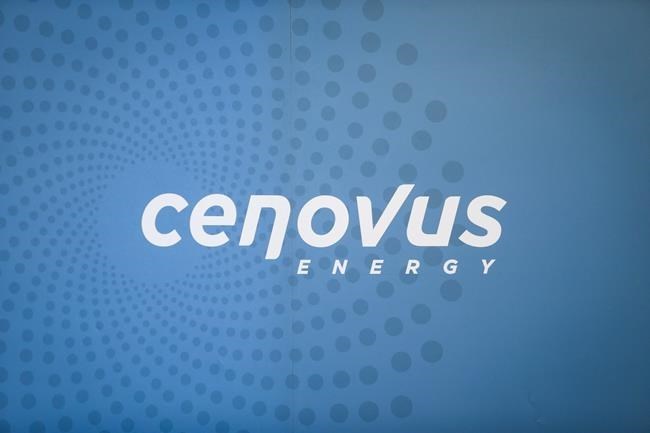CALGARY — Cenovus Energy Inc. will continue to keep a tight rein on capital spending even as crude prices surge to eight-year highs, the CEO of the Calgary-based oil producer said Tuesday.
In a conference call with analysts, chief executive Alex Pourbaix said the company has been pleased to see oil's recent rally to heights not seen in years, as low global supply and increased economic activity due to the easing of pandemic health restrictions drives demand.
Last week, the benchmark West Texas Intermediate price soared above US$90 per barrel, and some analysts have predicted it will break the US$100 per barrel threshold later this year.
But Pourbaix said the sky-high prices won't prompt a significant spending spree by Cenovus.
"I'm kind of old enough and bear enough scars that I guess when it comes to pricing, I'm always very cautious," Pourbaix said.
"We anchor all of this company's development plans at the bottom of the cycle for oil and gas. We won't invest in a project that doesn't deliver an acceptable return at the bottom of the cycle . . . which we would describe as kind of $45 WTI."
Cenovus, like other major Canadian oil producers, spent several years cutting spending during a period of depressed commodity prices. Since oil prices rebounded last year, the company has been focused on increasing dividends to shareholders, share buybacks, and debt reduction.
According to the Canadian Association of Petroleum Producers, capital spending across the entire industry this year will remain well below boom-time levels, in spite of surging prices. CAPP projects capital spending in the oilpatch will grow by $6.0 billion this year to $32.8 billion, but that's still far below the 2014 record high of $81 billion.
But while major new capital projects may not be in the cards, sustained current commodity prices will mean significantly more day-to-day activity for Cenovus in 2022.
Already in the fourth quarter of 2021, the company's upstream production rose to 825,300 barrels of oil equivalent per day, compared with 467,200 boepd in the fourth quarter of 2020.
Total downstream throughput for the quarter was 469,900 barrels per day, up from 169,000 a year earlier.
"We're going to be employing a lot of service — a lot of drilling and service rigs, a lot of contractors, just with our basic sustaining capital program," Pourbaix said on the call.
High oil prices also mean Cenovus has been rapidly paying off debt, and is quickly approaching its $8-billion net debt target. That will mean more free cash flow available to allocate in 2022, Pourbaix said, increasing shareholder returns will be top of mind.
"I assure you we will continue the capital discipline you've come to expect from us," he said.
Cenovus' stock price sank Tuesday as the company reported a fourth-quarter loss of $408 million for the quarter ended Dec. 31, as it took a $1.9-billion one-time non-cash impairment charge related to its U.S. refinery business. The company, which completed its takeover of Husky Energy at the start of last year, says the loss amounted to 21 cents per share, compared with a loss of $153 million or 12 cents per share a year earlier.
Cenovus shares closed at $18.34 Tuesday, down 6.24 per cent from the previous day's closing.
ATB Capital Markets analyst Patrick O'Rourke said in a note that while the company's strong fourth quarter production volumes exceeded expectations, cash flow was lower than analysts had predicted due to weaker U.S. refining results.
"Overall, we view the event as neutral," O'Rourke said of Cenovus' fourth quarter earnings report.
Revenue for the quarter totalled $13.7 billion, up from $3.5 billion a year earlier and $12.7 billion in the third quarter.
Adjusted funds flow amounted to $1.9 billion or 97 cents per share compared with $333 million or 27 cents per share a year earlier.
Cenovus also reached agreements during the quarter for asset sales with total proceeds of about $1.5 billion. The company agreed to sell its Husky retail fuels network for approximately $420 million as well as its Wembley assets in its conventional business for about $238 million. The Wembley transaction is expected to close in the current quarter and the retail deal in mid-2022.
The company also announced the sale of its Tucker thermal oilsands project in northeast Alberta, a deal that closed Jan. 31 for about $800 million.
Cenovus said Tuesday it does not anticipate further significant divestitures in the near future.
This report by The Canadian Press was first published Feb. 8, 2022.
Companies in this story: (TSX:CVE)
Amanda Stephenson, The Canadian Press



